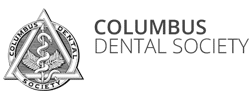Dental professionals must be keenly aware of the potential hazards when prescribing opioid analgesics for patients and the possible risk of adverse physical effects as well as the potential abuse of these drugs. Evidence from third molar extraction postoperative pain studies* reveals that non-opioid analgesic combinations such as non-steroidal anti-inflammatory drugs (NSAIDS) and acetaminophen appear to provide analgesia equivalent to those of opioid combination medications. Suggested combination dosage: Ibuprophen 400-800 mg + Acetaminophen 500-1000 mg, every 6 hours
Non-opioid analgesics differ from opioid agents in several ways:
- Non-opioids do not produce physical or tolerance dependence.
- NSAIDS are anti-inflammatory agents.
- Non-opioids inhibit prostaglandin synthesis at the site of injury in the peripheral nervous system; Opioids act on receptors in the central nervous system.
- Non-opioids have a ceiling effect in pain control (a maximum dose beyond which analgesic effect does not increase).
- Non-opioids are not classified under Controlled Substances.
Non-opioid combination analgesic is recommended to reduce postoperative pain without causing adverse effects commonly induced by opioid medications. However, adverse effects for both NSAIDS and acetaminophen need to be identified and closely monitored.
* Moore PA, Hersh EV J Am Dent Assoc. 2013;144:898-908

 Dr. Sakamoto
Dr. Sakamoto
 Dr. Mannava
Dr. Mannava
 Our Team
Our Team
 FIRST VISIT
FIRST VISIT
 PATIENT FORMS
PATIENT FORMS
 DENTAL INSURANCE
DENTAL INSURANCE
 POST-OP INSTRUCTIONS
POST-OP INSTRUCTIONS





